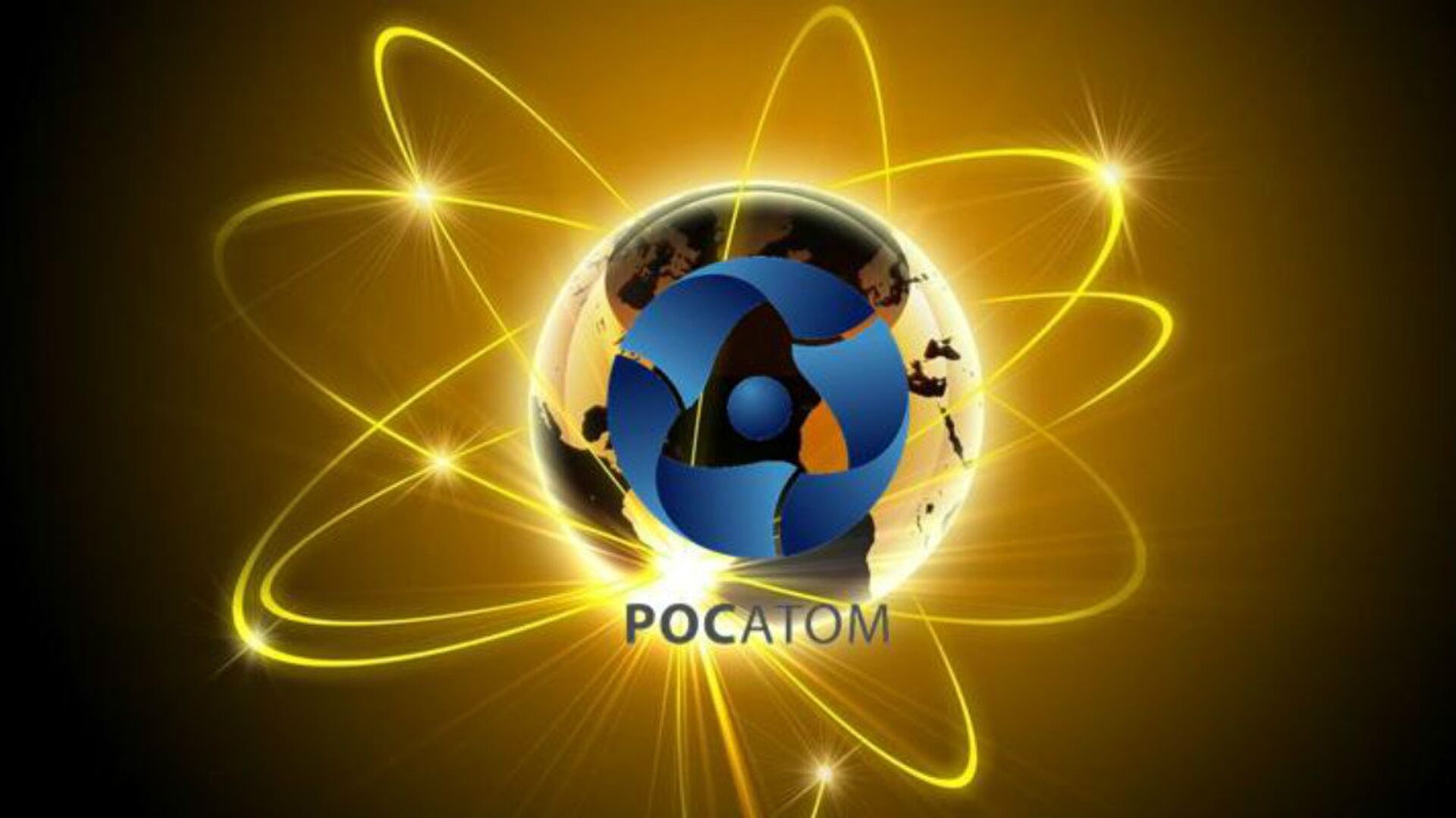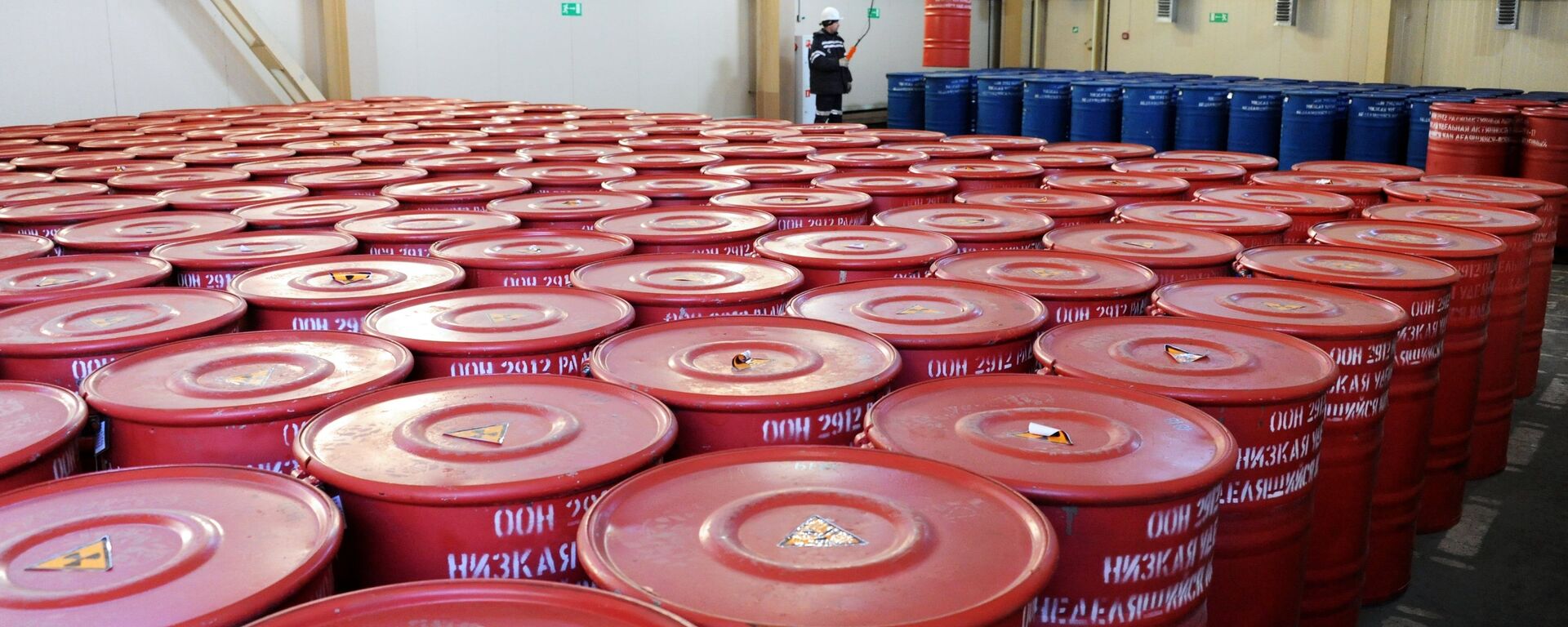https://sputnikglobe.com/20240422/g7-could-take-10-years-to-catch-up-with-russian-nuclear-fuel-output-1118063075.html
G7 Could Take 10 Years to Catch Up With Russian Nuclear Fuel Output
G7 Could Take 10 Years to Catch Up With Russian Nuclear Fuel Output
Sputnik International
US President Joe Biden and his G7 have vowed to end imports of Russian nuclear fuel, but leading Western economies still lag behind Moscow in innovative atomic technologies, nuclear expert Valery Menshikov told Sputnik.
2024-04-22T19:14+0000
2024-04-22T19:14+0000
2024-04-22T19:14+0000
us
world
joe biden
valery menshikov
russia
hungary
finland
european union (eu)
g7
nuclear
https://cdn1.img.sputnikglobe.com/img/102284/01/1022840157_15:0:1082:600_1920x0_80_0_0_a4d2c02ab895adcdc15d9b9276a9e265.jpg
The US Office of Nuclear Energy (NE) asserted in a recent press release that the Biden-Harris administration is doing whatever it takes to ensure the nation's independence in terms of secure nuclear fuel supplies as well as to "re-establish US leadership in nuclear energy more broadly."The agency stressed that President Joe Biden's government is leading the "Sapporo 5" group, consisting of the US, the UK, France, Japan and Canada to support the growth of nuclear energy deployment around the world "free of Russian influence."But the NE was forced to admit that Russia presently supplies around 44 percent of global uranium enrichment services and 20 to 30 percent of enriched uranium products used in the US and Europe. To complicate matters further for the Sapporo 5, Russia is the only country selling high-assay low-enriched uranium (HALEU), which is indispensable for advanced nuclear reactors, on a commercial scale.President Joe Biden stated on April 19 that a US plant had managed to produce the first 200 lbs (90 kg) of HALEU and would make nearly a ton of the "powerful" nuclear fuel by the end of 2024. Given that in 2020 the US Department of Energy (DoE) projected that more than 40 metric tons of HALEU will be needed before the end of the decade to meet Washington's pressing climate goals, those amounts are a drop in the ocean.Russia maintains leadership in global uranium enrichment services, Sputnik's commentator stressed, adding that neither US nor European scientists have been able to achieve enrichment capacities matching those of their Russian peers. Russian nuclear fuel is also comparatively cheaper, Menshikov pointed out.The expert recalled that the Russo-US nuclear fuel trade started immediately after the collapse of the USSR: the 1992 Megatons to Megawatts Program envisaged the recycling of weapons-grade uranium from dismantled Russian nuclear warheads into low-enriched uranium used to produce fuel for American nuclear power plants. Over the decades, Russia routinely delivered large volumes of enriched uranium to the US.The expert expressed doubts that the US will be able to completely stop purchases of Russian nuclear fuel by 2028, as Biden has pledged.When it comes to the European Union (EU), the situation is complicated by the fact that there are 19 Russia-designed reactors within the bloc. The list of countries which have Russian-made nuclear equipment includes Slovakia, Hungary, Finland, Bulgaria and the Czech Republic. Although some European countries, such as Finland, have recently halted cooperation with Russia, others — like Hungary — are proceeding with new projects.According to the Bellona Environmental Foundation, the European Union doubled its purchases of Russian nuclear fuel in 2023, citing data from Eurostat and the UN’s international trade service Comtrade show."If EU countries paid a total of €280 million for Russian nuclear fuel in 2022, that more than doubled to €686 million for last year. In physical terms, this represents an increase from 314 tons of nuclear fuel to 573 tons," the foundation summed up.The hike in purchases came jut when the G7 called for efforts to halt imports of Russia's nuclear fuel.Meanwhile, Russia is continuing to develop its civil nuclear projects and build new atomic power stations in various parts of the world, mostly in non-Western countries, the expert noted.
https://sputnikglobe.com/20240420/catch-235-if-west-bans-russian-nuclear-fuel-no-one-will-suffer-except-itself-1118031030.html
https://sputnikglobe.com/20231107/us-acknowledges-critical-dependence-on-russian-nuclear-fuel-imports-1114801458.html
https://sputnikglobe.com/20231016/hungary-will-not-replace-rosatom-with-another-nuclear-fuel-supplier--top-diplomat-1114222620.html
https://sputnikglobe.com/20231005/rosatom-head-gives-certificate-of-fuel-delivery-to-rooppur-nuclear-power-plant-to-bangladeshi-1113948462.html
russia
hungary
finland
Sputnik International
feedback@sputniknews.com
+74956456601
MIA „Rossiya Segodnya“
2024
News
en_EN
Sputnik International
feedback@sputniknews.com
+74956456601
MIA „Rossiya Segodnya“
Sputnik International
feedback@sputniknews.com
+74956456601
MIA „Rossiya Segodnya“
russian nuclear fuel, us and eu dependency on russian nuclear fuel, leu, haleu, enriched uranium, rosatom is leader uranium enrichment services, uranium enrichment, eu and us doubled purchases of enriched uranium from russia in 2023, joe biden, us produces haleu fuel
russian nuclear fuel, us and eu dependency on russian nuclear fuel, leu, haleu, enriched uranium, rosatom is leader uranium enrichment services, uranium enrichment, eu and us doubled purchases of enriched uranium from russia in 2023, joe biden, us produces haleu fuel
G7 Could Take 10 Years to Catch Up With Russian Nuclear Fuel Output
US President Joe Biden and his G7 have vowed to end imports of Russian nuclear fuel, but leading Western economies still lag behind Moscow in innovative atomic technologies, nuclear expert Valery Menshikov told Sputnik.
The US Office of Nuclear Energy (NE) asserted in a recent press release that the Biden-Harris administration is doing whatever it takes to ensure the nation's independence in terms of secure nuclear fuel supplies as well as to "re-establish US leadership in nuclear energy more broadly."
The agency stressed that President Joe Biden's government is leading the "Sapporo 5" group, consisting of the US, the UK, France, Japan and Canada to support the growth of nuclear energy deployment around the world "free of Russian influence."
But the NE was forced to admit that Russia presently supplies around 44 percent of global uranium enrichment services and 20 to 30 percent of enriched uranium products used in the US and Europe. To complicate matters further for the Sapporo 5, Russia is the only country selling high-assay low-enriched uranium (HALEU), which is indispensable for
advanced nuclear reactors, on a commercial scale.
President Joe Biden stated on April 19 that a US plant had managed to produce the first 200 lbs (90 kg) of HALEU and would make nearly a ton of the "powerful" nuclear fuel by the end of 2024. Given that in 2020 the US Department of Energy (DoE) projected that more than 40 metric tons of HALEU will be needed before the end of the decade to meet Washington's pressing climate goals, those amounts are
a drop in the ocean.
"Undoubtedly, the speeches that Biden is now delivering are just another contribution to his collection of campaign promises. And since, the United States still depends on the supply of fresh enriched fuel for nuclear power plants, this task is one of the most important, including in political terms," Valery Menshikov, member of the Public Council of Rosatom Corporation and member of the Council of the Center for Russian Environmental Policy, told Sputnik.
Russia maintains leadership in global uranium enrichment services, Sputnik's commentator stressed, adding that neither US nor European scientists have been able to achieve enrichment capacities matching those of their Russian peers. Russian nuclear fuel is also comparatively cheaper, Menshikov pointed out.
The expert recalled that the Russo-US nuclear fuel trade started immediately after the collapse of the USSR: the 1992 Megatons to Megawatts Program envisaged the recycling of weapons-grade uranium from dismantled Russian nuclear warheads into low-enriched uranium used to produce fuel for American nuclear power plants. Over the decades, Russia routinely delivered large volumes of enriched uranium to the US.
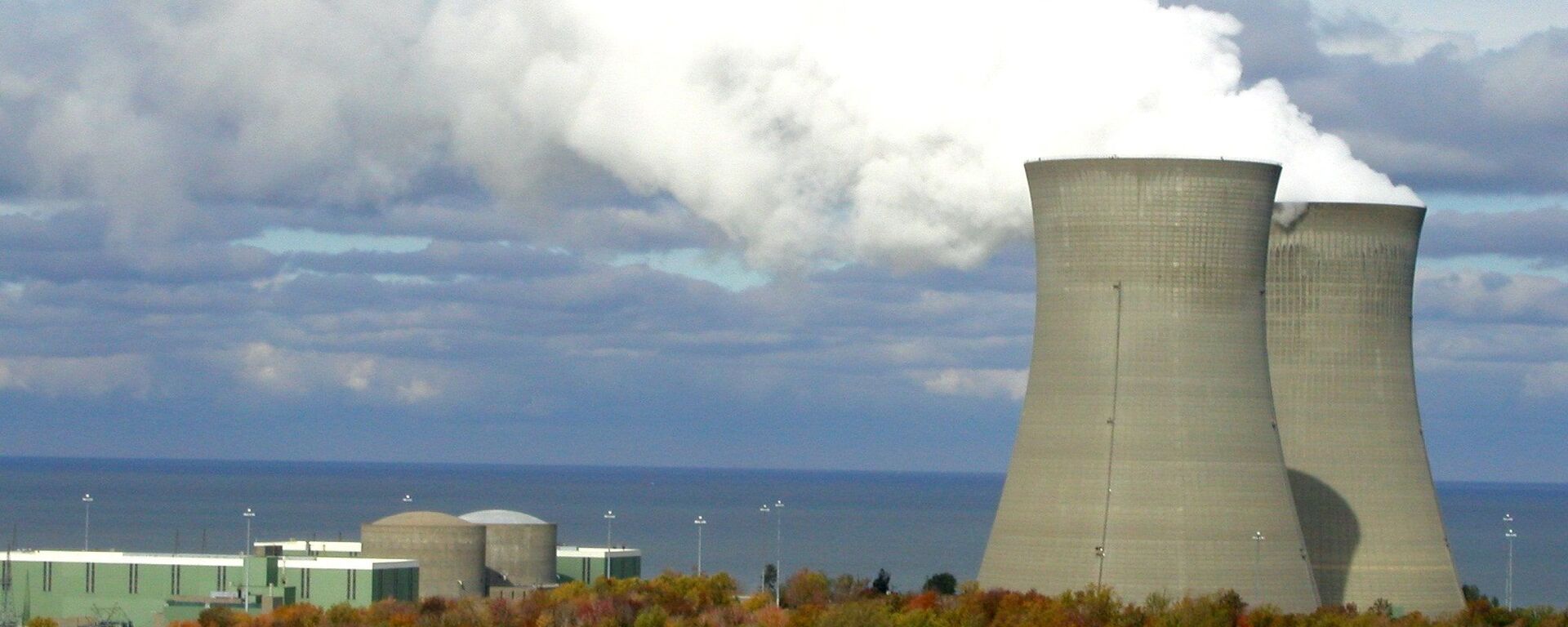
7 November 2023, 19:06 GMT
The expert expressed doubts that the US will be able to completely stop purchases of Russian nuclear fuel by 2028, as Biden has pledged.
"The problem is that the process [of making nuclear fuel] is very complex," Menshikov said. "The most important thing is that while it is possible to launch such productions, it's almost impossible to immediately make them as economically efficient as those in Russia. It had taken decades for Russia to set up its [nuclear fuel] production."
When it comes to the European Union (EU), the situation is complicated by the fact that there are
19 Russia-designed reactors within the bloc. The list of countries which have Russian-made nuclear equipment includes Slovakia, Hungary, Finland, Bulgaria and the Czech Republic. Although some European countries, such as Finland, have recently halted cooperation with Russia, others — like Hungary — are
proceeding with new projects.
According to the Bellona Environmental Foundation, the European Union doubled its purchases of Russian nuclear fuel in 2023, citing data from Eurostat and the UN’s international trade service Comtrade show.
"If EU countries paid a total of €280 million for Russian nuclear fuel in 2022, that more than doubled to €686 million for last year. In physical terms, this represents an increase from 314 tons of nuclear fuel to 573 tons," the foundation summed up.
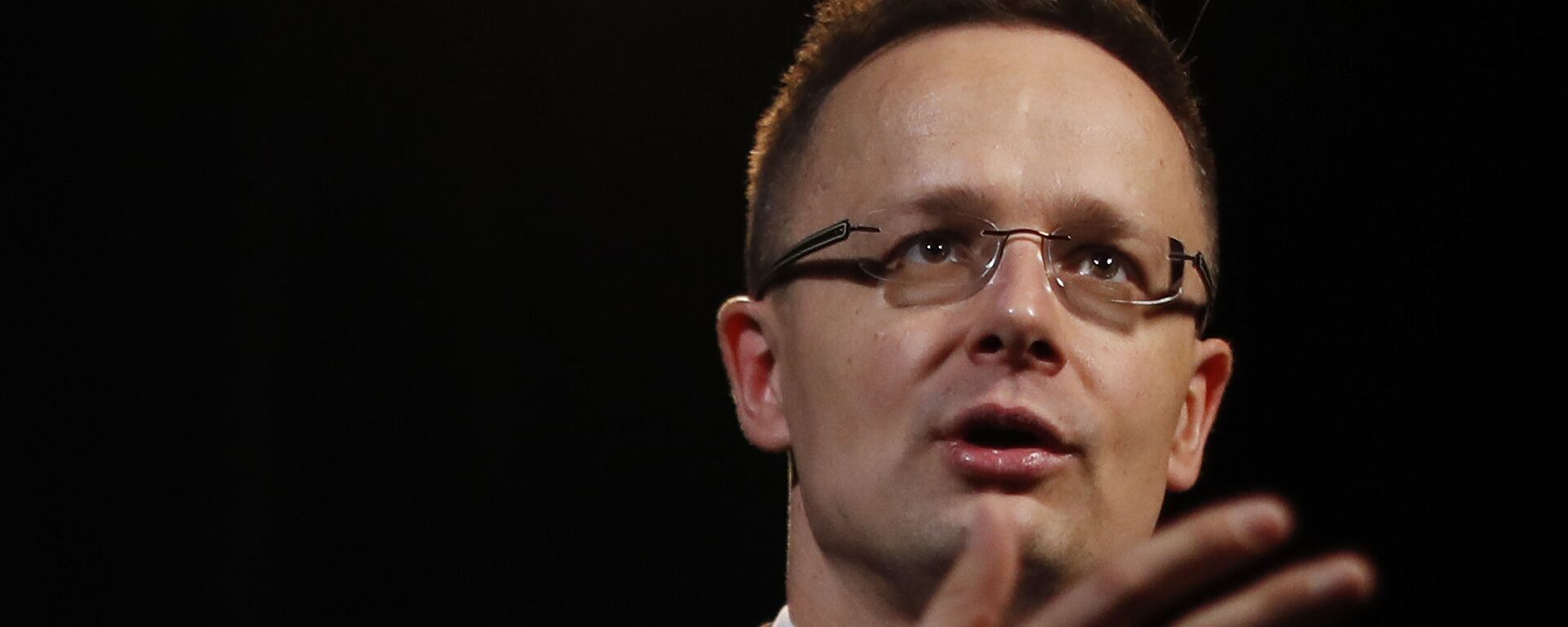
16 October 2023, 06:36 GMT
The hike in purchases came jut when the G7 called for efforts to halt imports of Russia's nuclear fuel.
"Can they walk the talk?" Menshikov asked. "We'll see, because large investments will be required. What's more, it’s not just a matter of financial investments, because new technologies are needed. We have these new technologies. Can they catch up with us? They are likely to make an effort during the next eight to 10 years."
Meanwhile, Russia is continuing to develop its civil nuclear projects and build new atomic power stations in various parts of the world, mostly in non-Western countries, the expert noted.
"We are building a lot of nuclear power plants abroad today," he said. "These countries are Turkiye, Egypt, India, China and Bangladesh. In general, the projects are very diverse. And most importantly, we are the absolute leaders here, and leaders in the construction of new stations abroad. And under all construction contracts we will provide completely fresh nuclear fuel."
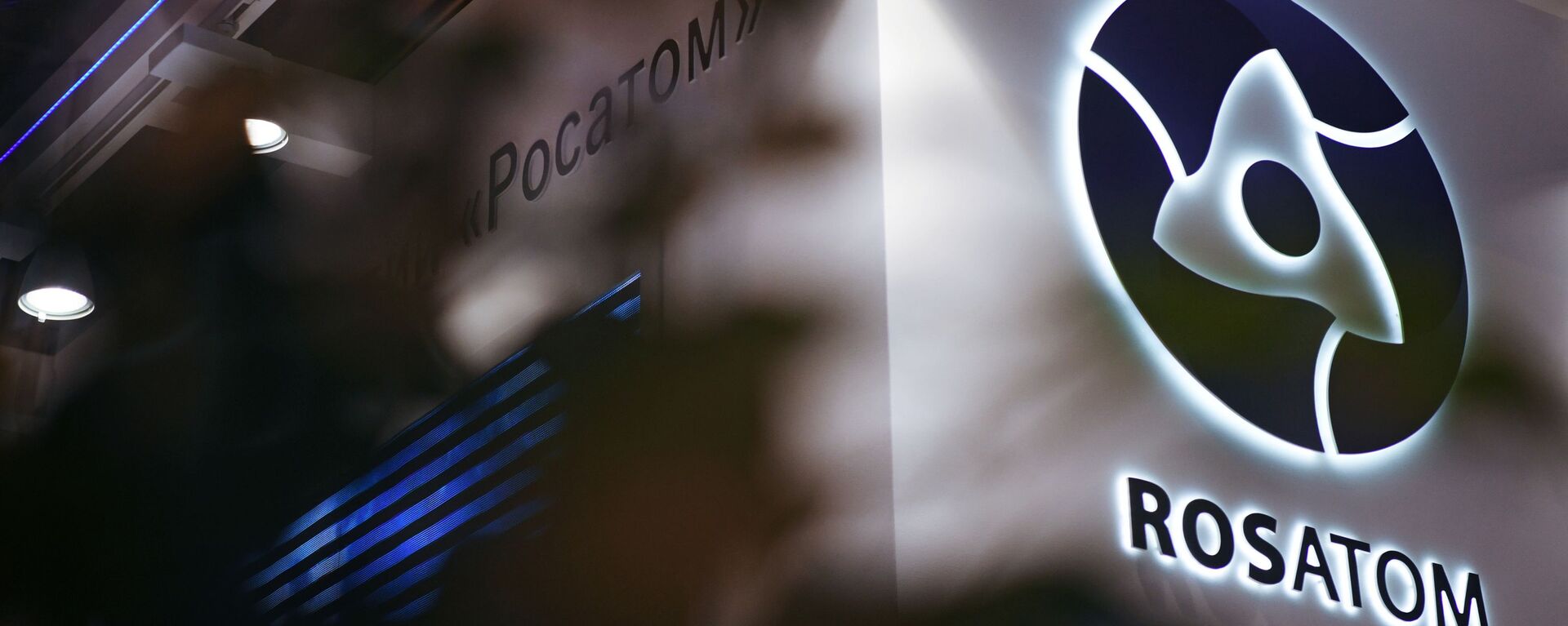
5 October 2023, 10:31 GMT
